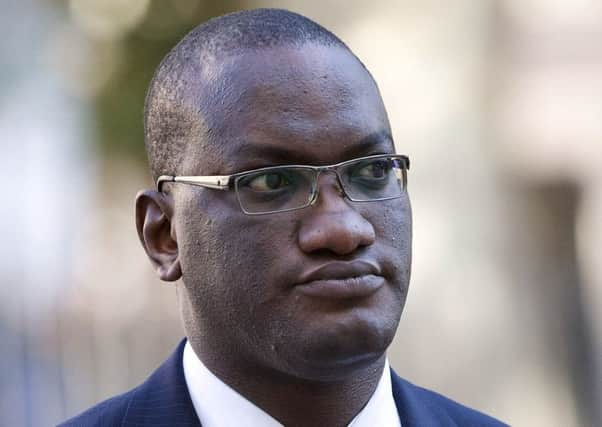‘Moral’ Sun reporter Anthony France spared prison


Crime reporter Anthony France, 41, from Watford, cultivated a “corrupt relationship” with PC Timothy Edwards over four years, his trial at the Old Bailey heard.
While working at Heathrow Airport in the SO15 counter-terrorism command, 49-year-old PC Edwards sold 38 stories and titbits of information to the journalist in exchange for more than £22,000.
Advertisement
Hide AdAdvertisement
Hide AdLast week, he was found guilty of aiding and abetting PC Edwards to commit misconduct in a public office between 2008 and 2011.
Yesterday, Judge Timothy Pontius sentenced him to 18 months suspended for two years, describing him as a journalist of “hitherto unblemished character” who was “essentially a decent man of solid integrity”.
He also ordered France to complete 200 hours of unpaid work and awarded prosecution costs of just under £35,000 on the understanding that News International, owners of the Sun, would take responsibility and foot the bill.
The judge highlighted the underlying culture of paying people for stories at the Sun, a practice which was “promoted, supported and encouraged” at all levels.
He told the court, packed with journalists: “It was, and apparently remains, the practice of the Sun newspaper, and I dare say many others, to pay members of the public for their stories. The practice is promoted, supported and encouraged at the paper at all levels within the internal structure.
“It is a practice that is certainly not improper itself, less is it to be condemned, as long as it does not involve encouragement by a journalist to anyone holding public office to abuse their trusted position for payment by providing confidential information in order it might be used to feed the public appetite for news that sometimes amounts to nothing more than titillating gossip.”
Judge Pontius said he did not doubt that many of the articles France wrote were in the public interest and “in the pursuit of responsible investigative journalism”, although a minority were “obviously salacious” and breached privacy.
He said payment for stories went through a clearly recognised and accepted procedure at the Sun and it was not a case of Mr France handing over a “grubby envelope” in a dark corner of a pub.
Advertisement
Hide AdAdvertisement
Hide Ad“The defendant was following an accepted procedure that had existed for some time. He had not recruited Timothy Edwards himself; he had inherited him from a colleague.”
On his decision to suspend sentence, Judge Pontius said a journalist should expect a sentence of roughly half that of a public officer because of their lesser role in the misconduct.
But in this case, it would not be in the public interest to jail France, whom he described as “an experienced journalist of hitherto unblemished character . . . essentially a decent man of solid integrity and social responsibility”.
France is the only journalist to be successfully tried following the controversial Elveden investigation and the first since a Crown Prosecution Service root-and-branch review last month which led to charges being dropped against nine out of 12 newspaper staff awaiting trial.
The trial heard Edwards passed on details ranging from airline pilots being breathtested to a drunken model flying into a rage after “catching her boyfriend romping with a woman next to him”.
The jury was not told Edwards pleaded guilty to misconduct in a public office and was jailed for two years in 2014.